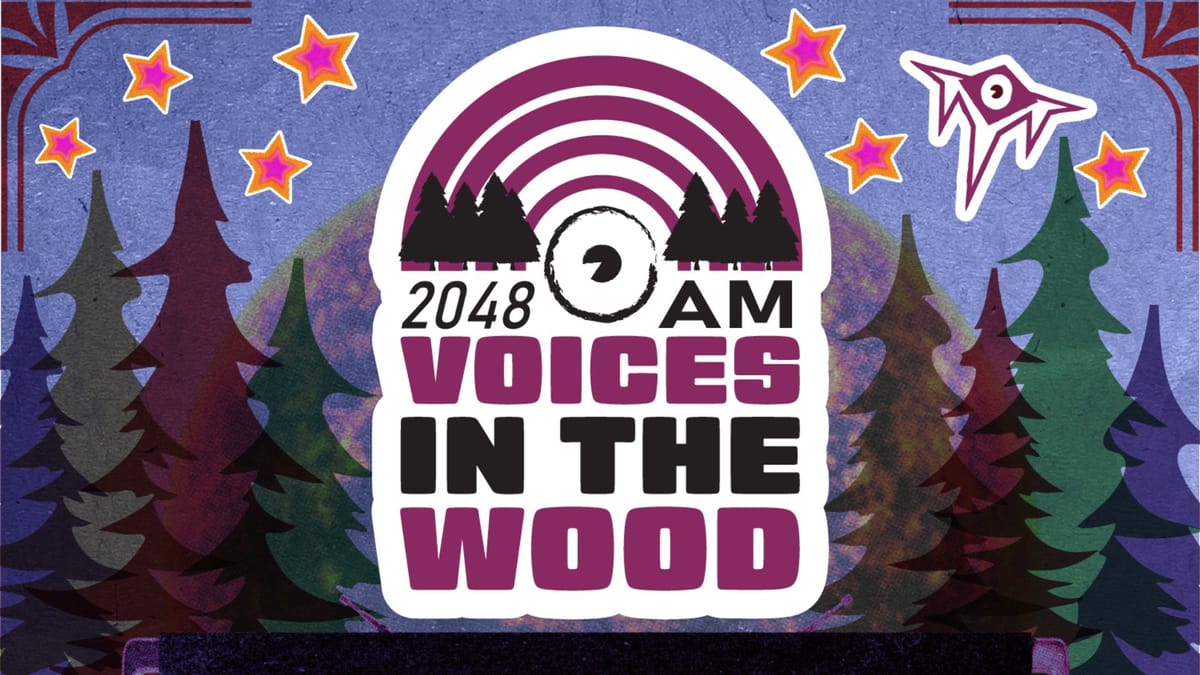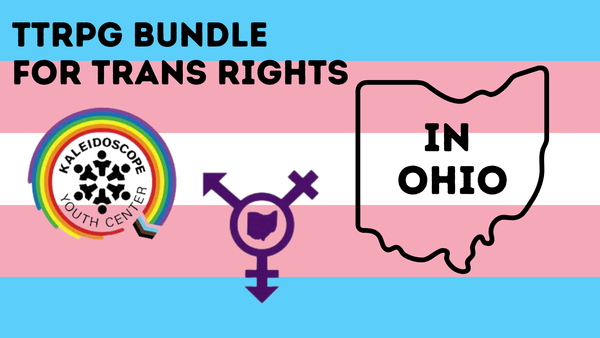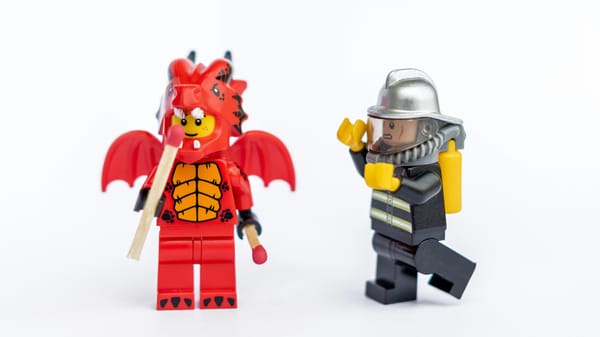If a tree falls in the wood, does it matter if it makes a sound?
Voices In The Wood is art by, and for, broken world

“Even though a tree may fall in the woods, and there is no one there to hear it, it still does make a sound. And maybe someone will hear it eventually.” - Lil Harry, Voices In The Wood
Driving through the New England countryside as the first leaves turn red, the soundtrack of an angry, suburban adolescence plays through my car’s half-broken stereo. Voices in the Wood, an actual play of the solo TTRPG Void 1680 AM, sounds just like any other radio show. Host Lil Harry plays a mix of indie, punk, hip-hop, and folk from 28 different artists. Between songs, callers talk to Harry about their problems, their fears, their loneliness. He offers advice if he can, or a distraction if he can’t. It’s his Role in this world as an Entertainer within the utopia that is Sublime County. He—like everyone in the Sublime—had his role assigned to him by The Stranger, a near god-like ruler to whom every citizen must follow without question. But that’s what Voices in the Wood is about: the questions, what it means to ask them, and what happens to those who do. These thoughts circulate my mind as I drive along the interstate, past semi-collapsed structures that someone once called home, on my way to a wedding where, for the first time, my moderate, middle class family will see me in a dress.
Voices in the Wood by Tales Yet Told is a profoundly American story. Over the show’s five episode run, the facade of utopia peels away to reveal the violence, sadness, and fear that poisons the lives of everyone in The Sublime. Using results generated by Void 1680, a solo game based in a uniquely American brand of talk show radio, the other 17 performers from a wide range of cultural backgrounds—most of whom are trans in some capacity—play citizens of The Sublime: students, librarians, farmers, cops, therapists, beings beyond comprehension. Through their conversations, the series follows its protagonist’s disillusionment amidst an unjust and oppressive world, culminating in an emotionally turbulent final episode that premiered on September 11th. While exploring the outer edges of actual play production, Voices in the Wood asks what art can do, if anything, in a world that is built on suffering—a question that I, a white American woman who writes about the radical power of games, don't always feel I can sufficiently answer.
That’s what Voices in the Wood is about: the questions, what it means to ask them, and what happens to those who do.
The host of Voices in the Wood, Lil Harry (played by co-creator Kendrick Smith) is the enthusiastic eighteen-year-old son of a famous news broadcaster who came to Sublime County from the outside world. Being an Entertainer was always going to be Harry’s path, though it becomes clear throughout the show that he initially wanted to be a musician. Voices in the Wood’s fiction is built on a foundation of rebellion, even if Harry doesn’t realize it. For his senior project, Harry begins this radio show with his former bandmates The Wolf Pack (who never speak and may or may not exist) to prove to the Stranger that he can fulfill the purpose he was given while also pursuing his own joy. Though Harry's potential isolation is left up to interpretation, the actual play is an overwhelmingly collaborative creation—with editing by Zach Zito, art direction from Fabian Lelay, Dramaturgy from Ellis Morgan, and production by Will Malkus.
The fictional Voices in the Wood is undeniably art, but it is also a school project. It exists in contradiction, simultaneously limited by the constraints of institutional evaluation, while also being freed from the expectation of consequence. In the eyes of those with power, there is no meaning in a child’s voice, no harm from his teenage (and temporary) rebellion. On Voices in the Wood, Harry features music from the outside, a mix of whatever countercultural records weaseled their way into the Sublime—mainly from genres that express an explicit discontent with the crumbling remains of an American Dream that only ever existed for a select few. He expects no one to listen to this show, but to his surprise, people tune in.





